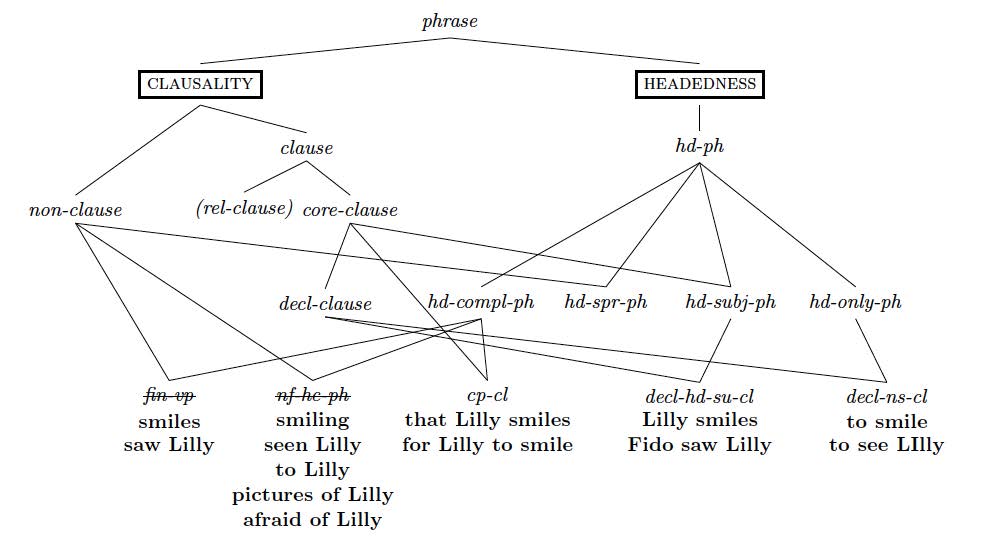Constraint-based Syntax 2: Week 5: Difference between revisions
| Line 16: | Line 16: | ||
Go to the online grammar and type in expressions which you expect to be VPs (finite and non-finite), NPs, APs, and PPs. Click on the top node to convince yourself that all of these phrases belong to the type ''hd-compl-ph''. | Go to the online grammar and type in expressions which you expect to be VPs (finite and non-finite), NPs, APs, and PPs. Click on the top node to convince yourself that all of these phrases belong to the type ''hd-compl-ph''. | ||
[http://141.2.159.95:7002/wt/ Online Grammar] | |||
Revision as of 06:56, 16 May 2017
A Simplified Type Hierarchy for Phrases
The type hierarchy for phrases of GS is fairly complex. In particular, Head-Complement Phrases are divided into the 2 subtypes fin-vp and nf-hc-ph. The motivation for this is that finite verb phrases in English have special properties with respect to negation and GS and Sag want to capture these properties in the definition of the type fin-vp. The disadvantage of this approach is that the second subtype of hd-comp-ph becomes cumbersome to state, since it includes phrases headed by non-finite verbs and phrases headed by nouns, adjectives, prepositions, and complementizers.
The online grammar avoids this complexity by eliminating the two types fin-vp and nf-hc-ph:
As a consequence, all the expressions which fell under one of these two types now simply have hd-compl-ph as their maximal phrase type.
Exercise
Go to the online grammar and type in expressions which you expect to be VPs (finite and non-finite), NPs, APs, and PPs. Click on the top node to convince yourself that all of these phrases belong to the type hd-compl-ph.
Navigation:
